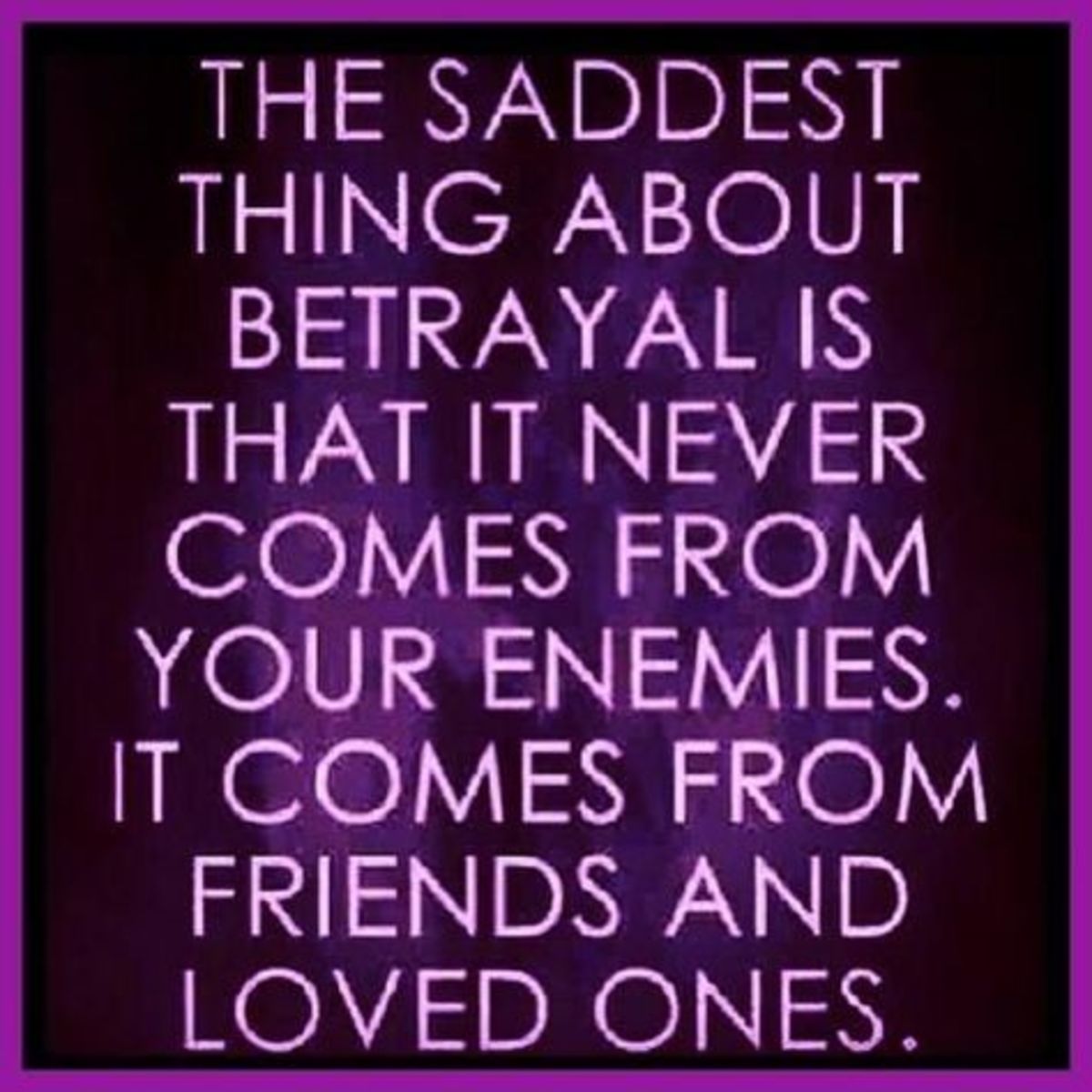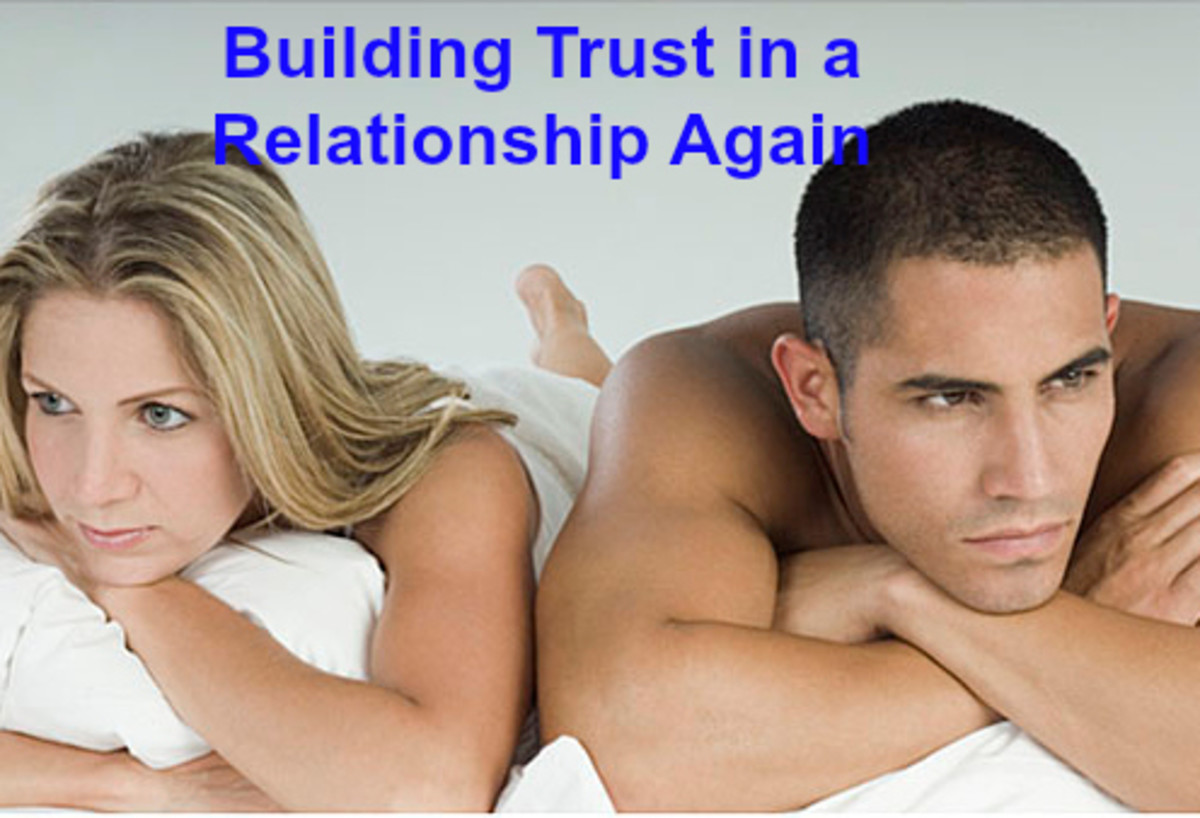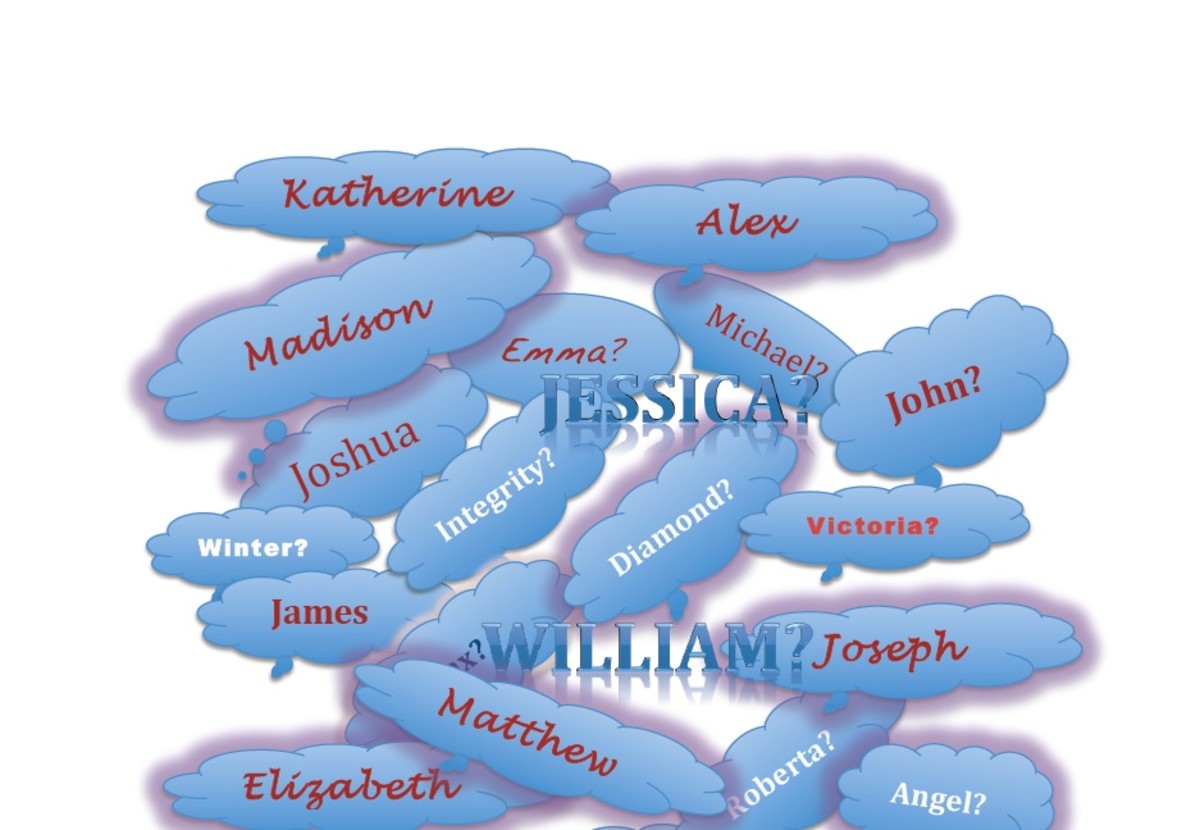Trust And Betrayal: How To Trust Without Getting Taken
The Dilemma of Trust - how to trust in a world that betrays us?
Many of us face this dilemma, whether we realize it or not: we want to have close relationships with people, but people can't be trusted. If we trust people, we will be let down. Friends stab us in the back, politicians and businessmen lie and steal from us, advice-givers steer us wrong, parents abuse and abandon us, teachers misinform us. Such is life. But we fear – with good reason – that if we trust no one, will live lonely, alienated lives. No one wants to be without friends to rely on. Even the most independent soul feels the need for someone to have his back sometimes.
Consider this: if you trust those who will betray you, do you really have friends to rely on, or are you living in a dream world? When you are betrayed, you're confronted with the problem of how do you trust again. And if you do find a way to trust again, you're back where you started, and you will be betrayed again. If you simply don't trust people in the first place, you can't be betrayed or disappointed. Is this really worse than living in a fantasy world that will crumble to dust? If these are the only two options, perhaps distrust is the lesser evil. But are there really no other options?
There are two equal and opposite errors: total trust and total distrust. Let's look at total trust. Certain people seem born to be used and betrayed by sociopaths. They fall in love with someone who is charming and charismatic, or who simply tells people what they want to hear. The more perfect someone seems, the more perfect the victim assumes he is. Someone this gullible will get used, and used brutally.
There are even people who repeatedly put their trust in people no sensible individual would ever trust. What are we think of a woman who gets into relationships with one substance abuser after another? You could say she's crazy, but there's no dividing line between sane and crazy. It's a continuum. As long as she's not pushing a shopping cart down the street and screaming obscenities at no one in particular, most people who meet her won't realize there's anything wrong with her. She's just a very trusting soul.
The opposite extreme is total distrust. Let no one into your life. If someone offers to help you or even seems friendly to you, put your guard up. The more perfect someone seems, the more you suspect him of being a fraud. “Trust no one” as they said on The X Files. This guarantees that you will never be betrayed or used by someone else. It also guarantees that you won't have a single real friend on Earth.
Let's look at some possible ways out...
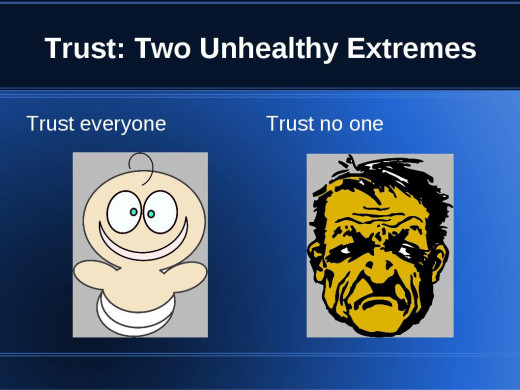
Trust Some, Distrust Others?
You can try splitting the difference by trusting some people, but not others. This just leaves you with a further problem: how do you decide whom to trust? Some cultures trust only close family members, and everyone else suspect. Sociologists call these high-context, low-trust or familistic societies. Examples are: Irish, Sicilian, Latino and Chinese. This approach really doesn't work very well. There's a lot of abuse that goes in these families, and the abused members have nowhere to go for help. This isn't surprising when you think it through. Why should someone be trustworthy simply because he's a relative? Most cases of child molestation involve family members. They have the opportunity, simply because they're trusted.
A variation of this is trust people you're close to and know – or at least think you know. This doesn't work either. Nearly all cases of child molestation involve people known and trusted by the family – teachers, caregivers, pastors and the like. The problem is, propinquity is not insight. Sociopaths are charmers. They're experts at seeming very nice, at conning naïve people into trusting them. Unless you are very careful, you simply won't see them for what they really are, no matter how long you know them, until the awful truth comes out.
Finally, many people trust people who share a culture or religion with themselves. This almost makes sense. If people share your way of thinking, you can count on them to think the same way you do... right? Well, it's not so simple. First off, they may only be pretending to share your values. Secondly, they may seem to share your values only because they use the same catchphrases and slogans as you, but they don't understand them to mean quite the same things as you do. We tend to think of people in terms of groups: one of us or one of them. The reality is that people are individuals, not stereotypes. In The Problem of Trust, Adam Seligman details how group identity can create an illusory trust that will leave us open to betrayal.
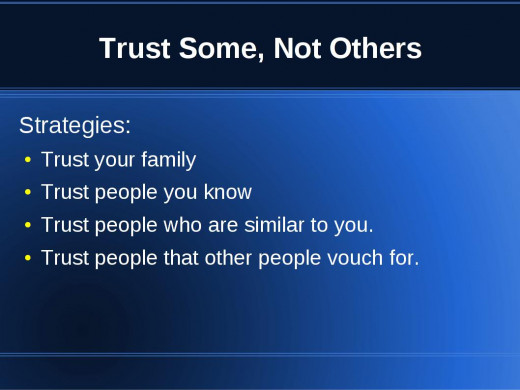
The Two Most Dangerous Types of People
This would all be simpler if we could learn to spot the signs of dangerous people, but our own human weaknesses cloud our judgment. There are two types of dangerous people that we tend to be taken in by, because they exploit weaknesses in our own reasoning: the charming sociopath who seems absolutely perfect, and the charismatic know-it-all who thinks he's way smarter than he is.
The sociopath deceives us deliberately, by dissembling. He poses as something he isn't. The weaknesses he exploits are: our tendency to judge by appearances, and our tendency to see what we want to see. The more perfect someone seems, the more you want to like him, the more likely that he is a sociopath and a fraud. He will charm you, not necessarily with overt flattery, but by seeming to think and feel as you do, implicitly validating your values.
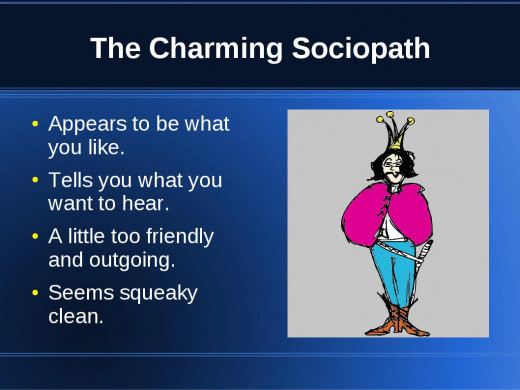
"Honest men seldom know all the answers." - John Cowan, Small Decencies
The charismatic on the other hand deceives himself, and we mistake his deluded self-confidence for competence. The charismatic may be very bright, but he's not as smart as he thinks he is. However, his faith in himself gives him an aura. He seems like a leader. When people are at their weakest they look for a leader -- a parental figure to guide them out of their difficulties. But we have no easy way of telling whether someone knows what he's doing, so we look for someone who looks like he knows. Unfortunately, someone whose self esteem is inflated has the same body language, demeanor and way of speaking regardless of whether he's right about himself or whether he's deluded. The weaknesses the charismatic exploits are: our tendency to judge by appearances and our tendency to give people the benefit of the doubt.
When someone is untrustworthy, it really doesn't matter why he's untrustworthy. Whether he's out to harm you, or whether he simply doesn't know what he's talking about, it's all the same as far as trust is concerned. Don't trust him.
That said, it sometimes makes sense to give someone a second chance if his failure seems to be accidental. Everyone screws up some time, and it may be just bad luck that his screwup impacted you. If it's out of character for him, just shrug it off. But if you don't know him well, you don't know what's in or out of character for him. Should you extend grace? It's a risk. Decide for yourself if you're willing to accept that risk. If there's little at stake, then extend grace. Wouldn't you want others to do the same for you? If there's a lot at stake, think twice.
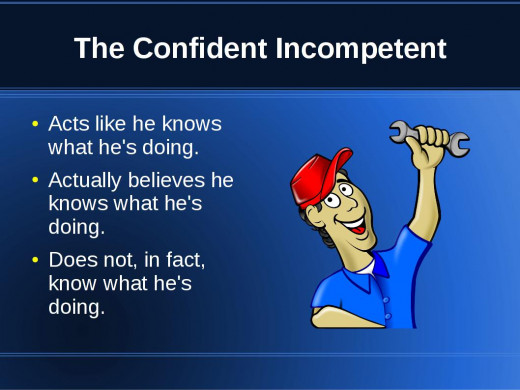
Be Careful of What You Wish For
Another problem is wishful thinking. We can ignore even obvious signs that someone is dangerous because we feel sorry for him. I once knew a mentally disabled man who molested a young girl, after having been allowed to spend a great deal of time with her. Did no one see this coming? They didn't want to. The poor guy was lonely, and it wasn't his fault he was that way. So they told themselves it would be all right. It wasn't.
Wishful thinking is behind many efforts to try to trust again after you've been betrayed. It's fine to give someone a second chance if there's some solid reason to think he has in fact changed, but it's foolish to give him the benefit of the doubt, or to deny your feelings of distrust. If someone has betrayed you, your feelings of distrust are legitimate and rooted in facts and logic. Don't be quick to throw away such hard earned wisdom. That won't make you a better person; it will only make you a stupid person. As for forgiveness, that's completely separate from trust, and don't trust anyone who tells you otherwise. “Forgive and forget” is just a saying, and it doesn't make any sense when you think about it. Forgive and remember.
Wishful thinking is also why it's a mistake to trust people because they're family, or because you've known them a while. We can't be objective about those close to us. A “close” family will think: “an attack on one of us is an attack on all of us!” That's why they don't see it coming when the betrayal comes from within.
A Different Approach
Could me maybe split the difference along a different axis? How about this: trust most people to some extent, but never trust anyone completely. This appeals to me, because it encompasses the complex nature of human character. It raises another question, however: how do we decide to what extent we should trust a certain person?
Here are some rules of thumb:
1: If someone has demonstrated – not merely claimed – competence in a particular area of expertise, then trust him in matters pertaining to that area of expertise.
2: Never trust anyone who routinely contradicts himself. It really doesn't matter whether he's deliberately lying or just not bright enough to realize he's contradicting himself. Whatever he says is not reliable, so disregard whatever he says.
3: Be suspicious of reputation. All that a good reputation means is that other people trust someone. Do you trust the judgment of these other people? Do you even know these other people that well? Why borrow their stupidity? Many confidence games make use of a “shill,” a second con man to vouch for the first con man. This works because of what's called “social proof.” Don't fall for it.
4: If it's too good to be true, it's probably not true. You could be facing a dissembling sociopath.
5: Don't rely on others for what you can do for yourself. We need other people, but not for everything.
6: Always have a backup plan. You'll be less anxious about being let down if you plan ahead to contain the damage.
7: A humble person is less likely to delude himself, but beware: humility can be faked.
8: A highly intelligent person is less likely to be wrong than a less bright individual, but beware: if he's too proud of his intellect, he will overestimate himself. When he does get it wrong, he will get it wrong on a grand scale.
9: Treasure the most trustworthy people in your lives.
10: The best trust is earned trust.
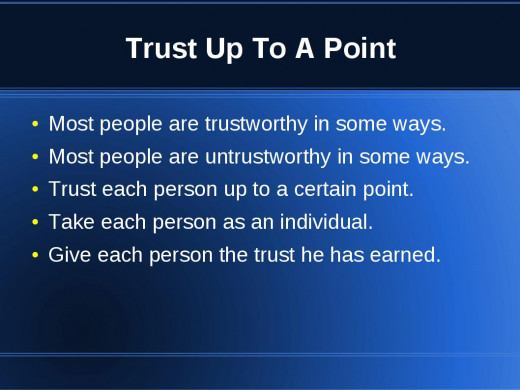
A Cautionary Tale
So much for rules of thumb. Even with all this, it's still hard to now when to trust. With experience, you learn to recognize the signs of a person's character. You also need to be mindful of your own human weaknesses.
A church pastor I know once brought on a youth counselor. The counselor was extremely charming. Everyone liked him. “Woe to you when men speak well of you.” said Jesus, and “cursed is the man who trusteth in man,” warned Jeremiah. but no one in this church took these scriptures to heart. Those of us with more worldly experience know it's a warning sign when someone seems too perfect, but the leadership of this church was naïve and/or deluded. Everything seemed fine until it came out that this guy had been molesting some of the children, including the pastors' son.
Afterward, I talked to this pastor about how he made staffing decisions. He told me, “I just go with my gut.” This is a bad idea if your gut lacks wisdom and discernment. Sometimes, a gut feeling is the subconscious result of cumulative experience, but sometimes it isn't. Not everyone's gut is made equal; there are wise guts and there are stupid guts. Sadly, the sort of person most likely to go with his gut is precisely the sort of person whose gut should not be trusted. Keep in mind this pastor said this to me after he had been betrayed. He had learned nothing. I came away from the encounter with a low opinion of him and of his church. He was a charismatic know-it-all – the other major type of person you should be wary of.

Live And Learn
If you are betrayed by someone you trusted, you were first betrayed by yourself in that you trusted him. Analyze the reasons why you trusted him in the first place and try to pinpoint where you went wrong. Don't make the same mistake again. If you learn the right lesson from a bad experience, then you have wrested some good from an evil.
Even with all this, you will go wrong, especially when you're still learning. Life is risk. Learning is risk. Learn how to trust, and also how to distrust. Trust no one on this Earth absolutely, not even yourself. Every relationship is a risk, but risk cannot be avoided. All you can do is try to calculate your risks and learn from experience.

